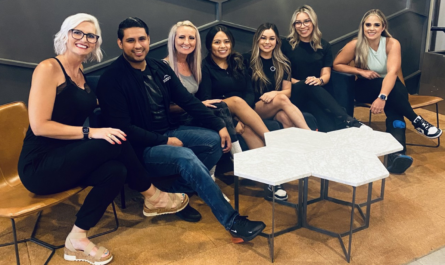What challenges are keeping more women from leading, and how to overcome them.
By Josey Sewell, Partner, DEO
It’s 2023 and I can’t believe we are still talking about the importance of women in leadership positions. There’s enough science and research to prove that when women lead, companies are healthier, happier and more profitable. If you are reading this article, chances are you probably feel like women deserve a place at the table too. Why then, do we continue to struggle?
The dental team is made up of primarily women, and we are seeing more women graduate than ever before from dental school, yet executive teams and boards of dental groups and DSOs are primarily male. Why? Who is to blame? Is it the men? The men get blamed a lot. Is it other women? Most of us have been hurt and demoralized far more by other women than we ever have been from men. I have felt more psychologically safe in a room full of men than I have a room full of women.
Gender equality is a complex problem that needs a complex solution. Both men and women as gender groups need to find ways to promote and support gender equality and inclusion, but we are missing the silent obstacles keeping women from truly succeeding in leadership – how women think of and view themselves.
It’s well known that men will apply for positions that they may not be fully qualified for, while women who are overqualified will live in doubt and not take a chance at applying. I want to talk about the challenges I see women face in becoming leaders and some steps to overcome them.
Imposter syndrome
Imposter syndrome is defined as the persistent inability to believe that one’s success is deserved or has been legitimately achieved as a result of one’s own efforts or skills. I struggle with this one personally. I cycle through feeling like I can conquer the world to being scared someone will find out I shouldn’t be in the position I am, and I shouldn’t be writing, speaking or coaching high-level entrepreneurs. I continually struggle to accept my success and feel like I deserve my place in this industry.
I do lots of things to combat these feelings of inadequacy. I keep a journal. I write about my experiences with clients, my team and other industry experts. I keep text messages, social media posts/comments (the positive ones), testimonials, and cards, and on the days I feel like a fraud, I read my own reflections about my work and the words of others to remember the truth. I have to keep facts in front of me of my success so I can stop the negative thoughts. I have a couple of people I’m very close to that I can call when I’m having a difficult time. I’m open with them about my feelings, and they help challenge my thinking and remind me of the good I’ve done.
I have also noticed that these feelings come when I am fatigued or out of my health patterns. A healthy mind follows a healthy body, and if I’m not exercising, eating well, sleeping well or keeping to my spiritual patterns, my mind starts to fill with doubt. It’s normal to have these feelings occasionally. Humility is a beautiful thing, but we need to keep it in check and realize that our greatest obstacles to our own success may be our thinking.
Fear of failure
I hear it all the time: “I really want to lead, but I don’t know what to do. I’m afraid I will fail.” Guess what? Nobody knows exactly what to do. Failing is part of the journey and something to be embraced, not avoided.
Think about the first time you did anything: taking care of a patient, giving a presentation, riding a bicycle, etc. Were you an expert the first time? Heck no! You won’t be a perfect leader. Being a successful leader is a lifelong pursuit, and even when we have lots of practice and are pretty successful, we still have moments when we fall down and have to get back up again. You will learn far more from your failures than you ever will successes.
Take a moment and reflect on your life. Think about a time when you failed. Did you survive? Were you better for it? Did you do things differently after you failed? Let go of perfectionism and enjoy the journey of becoming. Nothing turns out exactly like we want it to, ever. Your failures may end up being what propels you to become who you were meant to be. Stop shaming yourself and stop living beneath your potential to avoid the natural, necessary processes of growth.
Waiting for permission
I know a lot of incredible women who want to lead but are waiting for someone to tell them it’s time or open the door for them to walk through. Nobody is going to give you permission. Nobody is going to hold your hand and tell you what to do and when to do it.
In general, men are better at taking risks and putting themselves out there, while women wait for someone to convince them to lead. If you have the calling in your heart to lead, this is your sign to open your mouth and do something. Take some time to consider if you really want to lead and why. Connecting with your personal ‘why’ will motivate you to overcome any fear of rejection you might receive when you make it clear you want to lead. You will not know what to do before you act. With action comes clarity. Don’t worry so much about the steps, just get started where you are with what you have. Remember, rejection is just redirection – eventually you will find where you fit, where you are valued and how you can provide the greatest impact.
My journey from clinician to executive to entrepreneur has not been easy, but the best view comes after the hardest climb. From where I sit, the future is bright. If we’re going to thrive as an industry, we need more capable women in leadership, and more men in positions within the dental office team (dental assistants, hygienists, front office, etc.). When we embrace gender diversity in the workplace, everyone wins.
Josey Sewell is a dentistry expert in applying an operating system in dental groups to help them clarify their vision, focus on what matters, and achieve improved team health. She has unique expertise and the ability to weave together sound business systems and team development strategies. Her development programs have empowered leaders and executives to find more joy in their work and control of their business.






